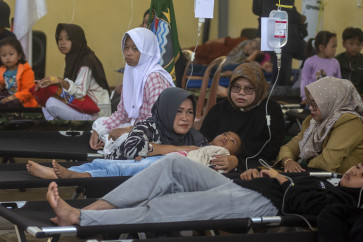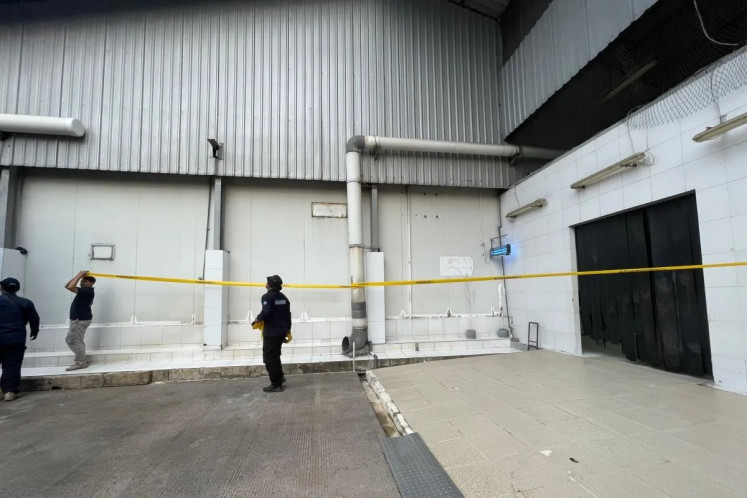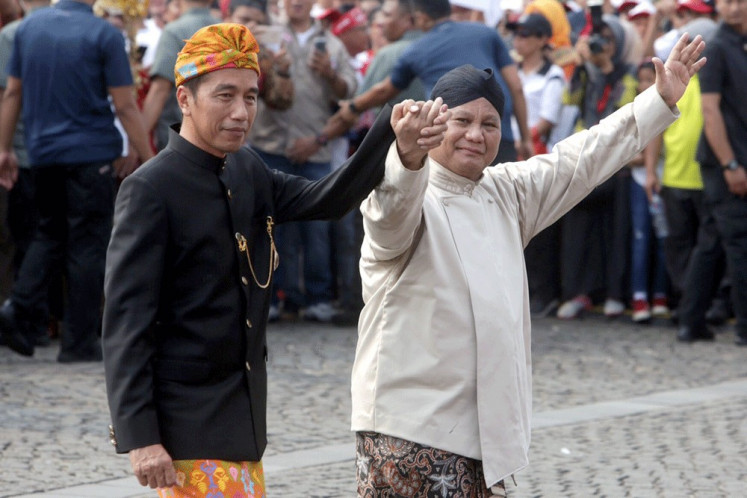Popular Reads
Top Results
Can't find what you're looking for?
View all search resultsPopular Reads
Top Results
Can't find what you're looking for?
View all search resultsICC ratification no panacea to end impunity: Marty
The ratification of the Rome Statute is no panacea to abolish impunity, and the fact Indonesia has yet to ratify the treaty does not cause any disadvantages to the country, says a top diplomat
Change text size
Gift Premium Articles
to Anyone
The ratification of the Rome Statute is no panacea to abolish impunity, and the fact Indonesia has yet to ratify the treaty does not cause any disadvantages to the country, says a top diplomat.
The Rome Statute is a treaty to establish the International Criminal Court (ICC), which prosecutes perpetrators of crimes against humanity, war crimes and genocide. The United States is against the treaty, while Indonesia is one of the countries that have signed but not ratified it.
"There are other ways and means by which Indonesia can demonstrate *its* opposition to impunity and promote of human rights," Indonesianpermanent representative to the United Nations, Marty Natalegawa, told The Jakarta Post recently.
"While we are yet to ratify the ICC, there are important elements of the statute that have been taken to on board our national legislations on human rights," Marty said, referring to the 2006 Human Rights Tribunal Law, which had prosecuted perpetrators of violence in East Timor (now Timor Leste), Tanjung Priok and Abepura.
While being championed as a beacon of democracy and defender of human rights in Southeast Asia, Indonesia, the world's third-largest democracy, has been harshly criticized for failing to resolve alleged rights violations in the impoverished but resource-rich Papua province.
Human Rights Watch recently urged the government to investigate allegations of prison brutality in Abepura Prison, in whichprisoners, dozens of them alleged separatists, have reportedly been tortured and beaten.
Meanwhile, the failure to unravel the mystery behind the killing of rights defender Munir Said Thalib and also the vice presidential nominations of two retired military generals - Prabowo Subianto and Wiranto - allegedly linked to the murders and kidnappings of anti-Soeharto activists in 1998 riots are fueling suspicions Indonesia is dragging its feet on ratifying the accord.
According to a 2006 presidential decree outlining the country's human rights agenda, Indonesia should have ratified the treaty last year. TheSusilo Bambang Yudhoyono administration, however, has failed to do so due to sluggish deliberation.
Harkristuti Harkrisnowo, the Justice and Human Rights Ministry's director general for human rights protection, told the Post the government was still drafting a document highlighting the benefits of ratifying.
The ministry planned to complete the document this year, but Harkristuti said she could not comment on whether the deliberation process at the House of Representatives would be swift enough to get the treaty ratified this year.
Marty denied the government was having second thoughts about the ICC, as suggested by a number of rights activists, saying there was no "sinister reason" behind the ratification delay.
When asked whether the Papua issue had undermined the ICC ratification, Marty said, "An instrument like the ICC is far too important in terms of our commitment to be simply decided on one or two issues. Because when you ratify it, you ratify it forever."
"We can't afford to have a view that is simply governed and determined by one issue. We have signed it and will look at the various implications to ensure our core national interests are served by ratifying it."










